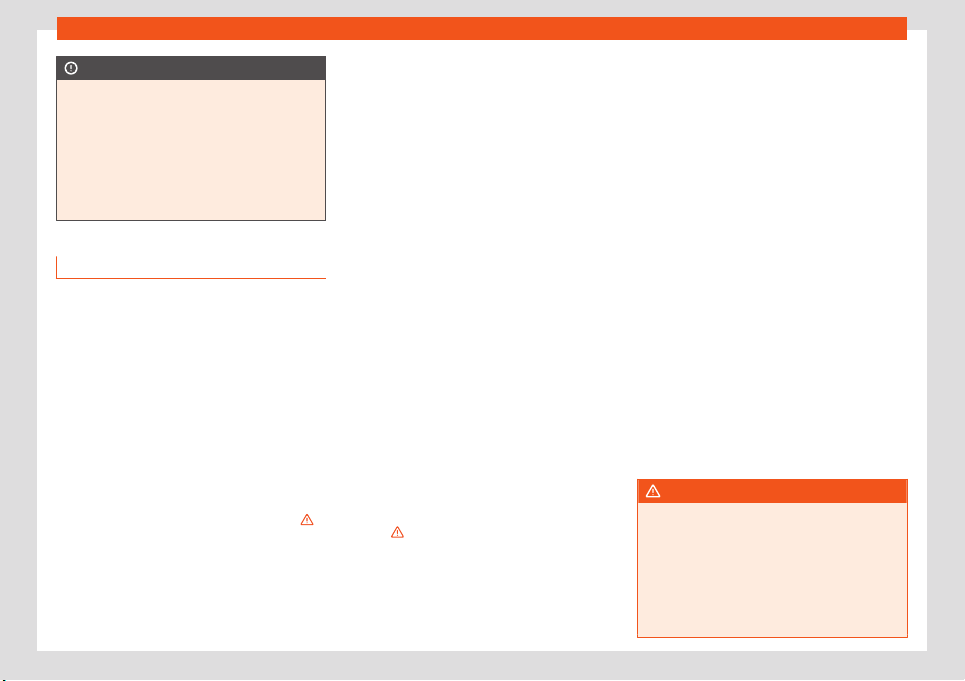Loading ...
Loading ...
Loading ...

Checking and refilling levels
CAUTION
●
Never use of F
AME (biodiesel), petrol,
heating oil, other fuels or thinning agents
as they can cause severely damage the
fuel system and the engine.
●
If the wrong fuel has been filled, do not
start the engine under any circumstances.
Risk of damaging the fuel system and the
engine! Obtain technical assistance.
Natural gas
3 Applies to vehicl
es: with a natural gas engine
Natural gas can be compressed or in liquid
form, addition to others.
Use of compressed natural gas (CNG)
Vehicles with a natural gas engine must only
be working with CNG (Compressed Natural
Gas CNG ), or with a mixture of biomethane
if it complies with Regulation EN 16723-2.
Do not use fuels such as liquefied natural gas
(Liquefied Natural Gas), liquified petroleum
gas (LPG = Liquefied Petroleum G) or hy-
thane (hydrogen mixed with methane)
›››
.
Ther
ef
or
e, vehicles with a natural gas engine
must only be refuelled using compressed
natural gas (CNG).
Natural gas quality and consumption
Natural gas is divided into the groups H and L
depending on its quality.
Gas type H has a superior heating power and
inferior nitrogen and carbon dioxide content
than type L. The higher the heating power of
the natural gas, the lower the consumption
will be.
However, the heating power and the propor-
tion of nitrogen and carbon dioxide can fluc-
tuate within the quality groups. Therefore, ve-
hicle consumption can also vary when using
a single type of gas only.
The engine management automatically
adapts to the natural gas used according to
its quality. Therefore, different quality gases
can be mixed in the tank, without the need for
comprehensive draining before applying a
different quality gas.
Updated information relating to natural gas
quality is displayed on the instrument panel
›››
page 108.
Natural gas and safety
If you can smell gas or suspect that there is a
leak
›››
:
●
Stop the vehicle immediately.
●
Switch the ignition off.
●
Open the doors to appropriately ventilate
the v
ehicl
e
.
●
Extinguish cigarettes immediately.
●
Move away from the vehicle or switch off
objects that may cause sparks or a fire.
●
If you continue to smell gas, do not contin-
ue driving!
●
Seek specialist assistance. Have the fault
repaired.
Regular checks of the natural gas system
The natural gas tanks may be damaged or
corroded by external factors. The walls of the
gas tanks are weakened by deformations,
damage or corrosion. As a result, the tanks
could burst and result in serious injuries or
even death. For this reason, the vehicle owner
must have a specialised workshop check (vis-
ual check) the gas system every 4 years at
least. The vehicle owner must have a speci-
alised workshop replace the natural gas
tanks before they reach the end of their serv-
ice life. For further information about the serv-
ice life of gas tanks, go to a SEAT dealer serv-
ice or a specialised workshop
WARNING
Failure to act when you can smell gas in the
vehicle or when r
efuelling can cause seri-
ous injuries.
●
Carry out the necessary operations.
●
Leave the danger zone.
●
If necessary, warn the emergency serv-
ices.
»
319
Loading ...
Loading ...
Loading ...